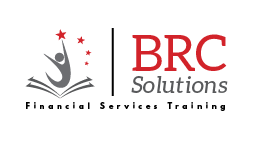Frequently asked questions about financial services
Our FAQs will provide you with more insight about our financial services training courses
Qualification FAQs
How do I find out about the number of credits I have?
Please send an email to credits@brcs.co.za along with your full name and ID number requesting BRC to do a credit check on the Inseta website
How long does a qualification take?
A minimum of 6 months and a maximum of 12 months
How many modules do I need to do to complete the Short -Term Insurance Level 4 Qualification?
There are 4 modules EXCLUDING fundaments (English, Second Language and Maths)
What are the requirements to meet the Inseta concessions for fundamentals?
You need to have passed Grade 12 / matric with the following:
- English – 40% , E or 3
- Any 2nd South African Language – 40%, E or 3
- Maths, Maths Core or Maths Literacy – 40%, E or 3
What happens if I do not meet the concession requirements for fundamentals?
You will need to complete the Study Schools through BRC for the subjects where you did not meet the requirements.
Learnership FAQs
What is a learnership?
A learnership is a structured work-based learning programme that includes both theoretical learning with an accredited training provider as well as practical experience in the workplace, all of which leads to a registered qualification. In a nutshell, without workplace experience there is no learnership.
Why is there a legal agreement between the parties involved?
The legal agreement is intended to spell out the tasks and duties of the employer, the learner and the training provider. It is designed to ensure the quality of the training and to protect the interests of each party.
What is the difference between an employed and unemployed learnership?
Employers can offer learnerships to their own employees (employed learnership) or can recruit unemployed people (unemployed learnership) for training. Current employees who are provided with learnerships are referred to as 18(1) learners. Unemployed people who are offered learnerships are known as 18(2) learners.
What are the benefits of a learnership?
There are a number of reasons why employers should get involved in learnerships. They are a way to upskill people and people with more skill ultimately make better workers. Read more about the exciting benefits of a learnership by clicking here.
What are the minimum requirements for a learner to take part in an unemployed learnership?
For most learnerships, the minimum entry requirement is a National Senior Certificate or National Certificate (Matric), but there may be more specific subject requirements such as competence in English and a second language at Matric level. Learnerships are available for young, unemployed people between the ages of 18 and 35. Only South African youth may be registered on an unemployed learnership. If you are unemployed, you can only participate in a learnership if an employer is prepared to provide the required work experience.
What are the minimum requirements for a learner to take part in an employed learnership?
For most learnerships, the minimum entry requirement is a National Senior Certificate or National Certificate (Matric), but there may be more specific subject requirements such as competence in English and a second language at Matric level. Learnerships are available for employed individuals of any age. Foreign nationals may be registered on an employed learnership.
Regulatory Exam FAQs
What are FAIS Regulatory Examinations?
They are multiple-choice questions testing financial advisors’ and brokers’ knowledge and understanding regarding:
- The laws in the Financial Advisory and Intermediary Services Act (FAIS) that oversee conduct and the general Code of Conduct.
- The giving of financial advice and services which apply to specific financial products.
What is the difference between Level 1 and Level 2 Regulatory Exams?
Level 1 examinations- deal with the laws that financial advisors and brokers need to know in order to render financial services and offer financial services to consumers. Once financial advisors have completed this exam they can apply their regulatory role and responsibilities when selling financial products and services to consumers with a full understanding of the laws involved.
Level 2 examinations – write product specific financial exams. The financial advisor or broker will only write an examination about the products he/she is allowed to sell.
What is the difference between RE1 and RE5?
Representatives write exam code RE5, while key individuals and sole proprietors write exam code RE1
Are there Level 2 Regulatory Exams?
The FSB has postponed these exams until another date can be determined.
Can I get CPD points?
The only valid CPD points which can be claimed at the moment, are those where one’s membership of a professional body is dependent on the attainment of certain requirements laid down by such a body. Achievement of the required points will only benefit one in terms of membership of such a body. The FSB has not as yet released any information in respect of CPD points for FAIS Fit and Proper Requirements.
